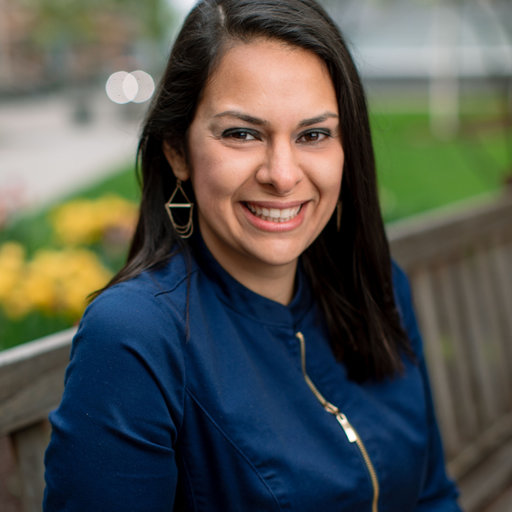
Narjust Duma, MD, Principle Investigator of the SHAWL Study
Today’s blog presents Narjust Duma, MD, Assistant Professor, Division of Hematology/Oncology, Medical Oncology, and Palliative Care, University of Wisconsin School of Medicine and Public Health, University of Wisconsin Carbone Cancer Center, Madison, Wisconsin. Dr. Duma (pictured left) is the Principal Investigator on the SHAWL Study on lung cancer treatments and women’s sexual health. Her story is fascinating and her love for patients is compelling. This article provides some insights into her clinical practice and her approach to serving patients.
From birth, Narjust Duma was destined to be a surgeon, like her parents. Instead, she fell in love with the relationships she built working with patients with lung cancer. It’s lucky for her patients that she became a clinical oncologist.
Coping Mechanisms
On a hospital rotation during medical school, one patient caught her attention. Maria (pseudonym) had metastatic lung cancer, and Dr. Duma found her conversations with her rewarding; she wanted to support Maria on her journey. During a surgery rotation, she realized that what she really wanted to do was meet with Maria after the cases were completed in the operating room. For Dr. Duma, it wasn’t about “getting it done,” she needed a comprehensive caring role.
When Maria passed, Dr. Duma heard from the other patient in the shared room that Maria had considered Dr. Duma the daughter she always wanted. In mourning Maria’s death, Dr. Duma found her calling.
Coping mechanisms are important for patients and physicians. Dr. Duma realized that she had the ability to cope with the life required of a compassionate oncologist. Cancer doesn’t define the patient, nor does it define the doctor.
Practicing Medicine for the Patient
“Patient-centric” describes Dr. Duma’s clinic. She achieves this through some core initiatives:
Dr. Duma feels obliged to consider quality of life issues together with her patients. In one case, a football game made a difference for a patient with metastatic lung cancer. The patient was about to begin chemotherapy and steroid treatments when Dr. Duma discovered that they shared a love of the Wisconsin Badgers football team, who were playing in that year’s Rose Bowl game. Delaying treatment (and treatment side effects) in order to attend the game was the patient’s choice, and Dr. Duma made that happen by modifying treatment schedules, prescribing supportive medication, and calling him right before the game. Living your best life with cancer was important for both the patient and the physician.
In her clinical practice at Carbone Cancer Center, she focuses in women with lung cancer. To enhance access to services, Dr. Duma took advantage of greater appointment availability on Fridays to create a “women-only” clinic. This dedicated day has been quite popular with her patients who also benefit from the clinic’s comprehensive care approach afforded all patients, both men and women.
In her practice, Dr. Duma also takes advantage of a pharmacist-created system to monitor treatment-related nausea. Patients are provided anti-nausea medication for anticipatory nausea and vomiting and chemo-induced nausea. In both cases, a pharmacist monitors the patient through phone calls, adding another level of personal care. These individuals experience double support with both Dr. Duma and the pharmacist weighing in with guidance and support.
Another unique aspect of patient care found in Dr. Duma’s clinic are candid discussions about the stigma related to lung cancer. She has found that guilt over past or current smoking has caused patients to hide their diagnosis from family and friends and carry the disease burden alone. Dr. Duma works to ease this burden. In her clinic environment, Dr. Duma ensures that all healthcare staff are educated about stigma and holds frank conversations with patients. She emphasizes that her clinic is a safe zone where the patient and the disease are treated without judgment.
Dr. Duma continues her fight to help patients live their best lives as the lead of the SHAWL Study on lung cancer and women’s sexual health. The SHAWL survey asks intimate and blunt questions about women’s sexual activity, questions that don’t get asked enough according to Dr. Duma. Once again, she’s breaking barriers, supporting patients, and motivating other healthcare practitioners to do the same.
Women with lung cancer of any type or stage can participate in the SHAWL Study by signing up for the Lung Cancer Registry and, upon reaching the core survey, click “my account” and “my surveys” to find the SHAWL Study option.

Leave A Comment